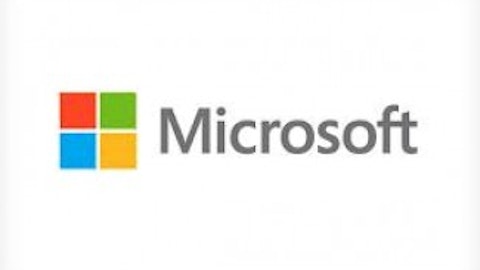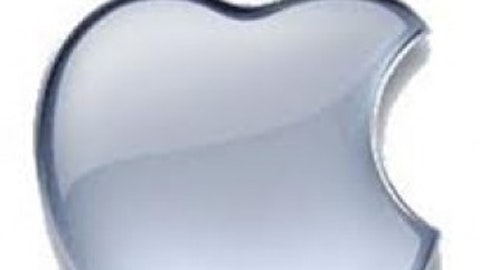A great deal of buzz surrounded the technology sector when it was revealed that Microsoft Corporation (NASDAQ:MSFT) had unleashed a new wave of cash on its shareholders. The software king authorized a gigantic share buyback authorization in addition to a huge dividend increase. Shareholders rejoiced on the news, as an increasing number of technology investors are embracing the merits of returning cash to shareholders.
At the same time, there’s a sense of hollowness to Microsoft Corporation (NASDAQ:MSFT)’s announcement, as recent news pertaining to its underlying business has been less than impressive. What are investors to make of Microsoft’s cash deployment? Are the dividend and buyback reasons to buy the stock, or is a dose of caution warranted here?

All told, Microsoft Corporation (NASDAQ:MSFT) announced its board of directors had approved a 22% dividend increase, as well as a new $40 billion share repurchase authorization. Microsoft was nearing the expiration of its existing share repurchasing program, and it had been a year since its last dividend increase. As a result, it wasn’t entirely a surprise that Microsoft would revise its two capital allocation programs. What was surprising, though, was the size of the dividend increase and new buyback.
Since the financial crisis, investors have widely clamored for increased dividend payments and share repurchases, even within the technology sector. Tech stocks used to have no association whatsoever with dividends, which were primarily reserved for stodgy utilities or consumer staples stocks. However, after the brutal 2008 market meltdown, investors are quickly changing their tune, and are expecting a fair share of cash from their equity investments.
Microsoft Corporation (NASDAQ:MSFT) has joined other technology stalwarts, including Intel Corporation (NASDAQ:INTC) and Cisco Systems, Inc. (NASDAQ:CSCO) , among the dividend-paying rank and file. All three technology giants have ratcheted up their payouts in recent years, after spending many years offering little to nothing in terms of yield.
Intel Corporation (NASDAQ:INTC) carries one of the highest yields in the Dow Jones Industrial Average, despite being a technology stock. The company yields a compelling 3.8%, and last year provided investors with a 7% dividend increase. Not to be outdone, Cisco Systems, Inc. (NASDAQ:CSCO) has made great strides in its shareholder return policy: After instituting a dividend in 2011, the company has nearly tripled it since then. The stock yields a healthy 2.8% at recent prices.
These technology stocks have strong balance sheets flush with cash and little to no debt to service. As a result, they more than have enough financial flexibility to bump up their returns to shareholders. Even with their market-beating yields, both Intel Corporation (NASDAQ:INTC) and Cisco Systems, Inc. (NASDAQ:CSCO) hold payout ratios less than 50%, meaning there’s still plenty of room to increase their distributions going forward.
Investors are likely excited by Microsoft Corporation (NASDAQ:MSFT)’s compelling dividend increase and new share buyback program, and rightly so. Studies have routinely shown that dividends have represented a large portion of total return over the past several decades. Moreover, in an investing environment in which interest rates remain at very low levels and yield is hard to come by, Microsoft’s new 3.4% yield is extremely attractive for investors starved for income.
Curb your enthusiasm
At the same time, I believe a dose of caution is warranted. Microsoft Corporation (NASDAQ:MSFT) still has fundamental questions surrounding its core business that remain unanswered. Specifically, the company has not yet proven it has a viable strategy to get its products and services away from the traditional personal computer industry. PC shipments are falling, and growth in computing going forward is clearly in the mobile space, an area in which Microsoft is quickly falling behind.





